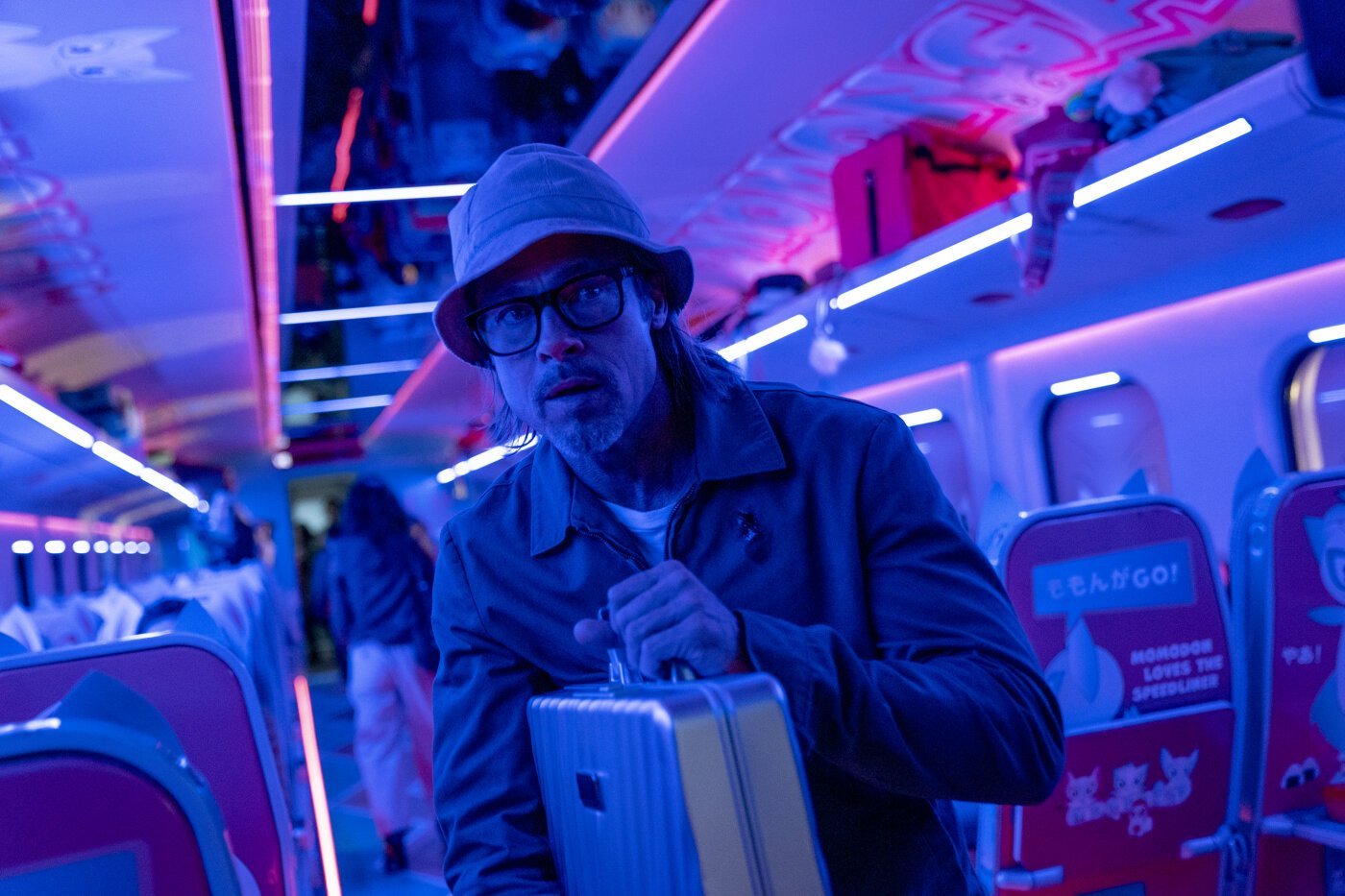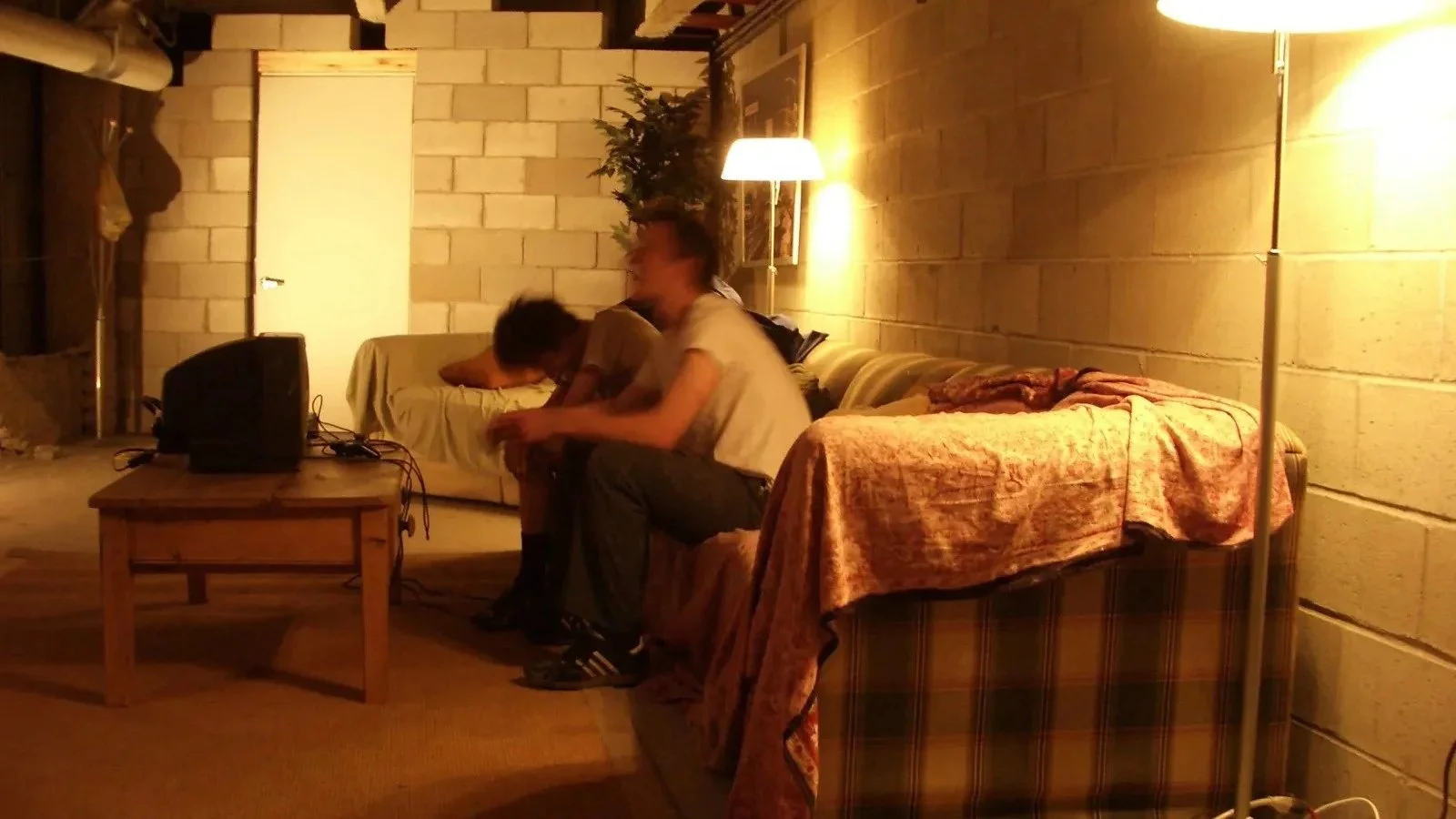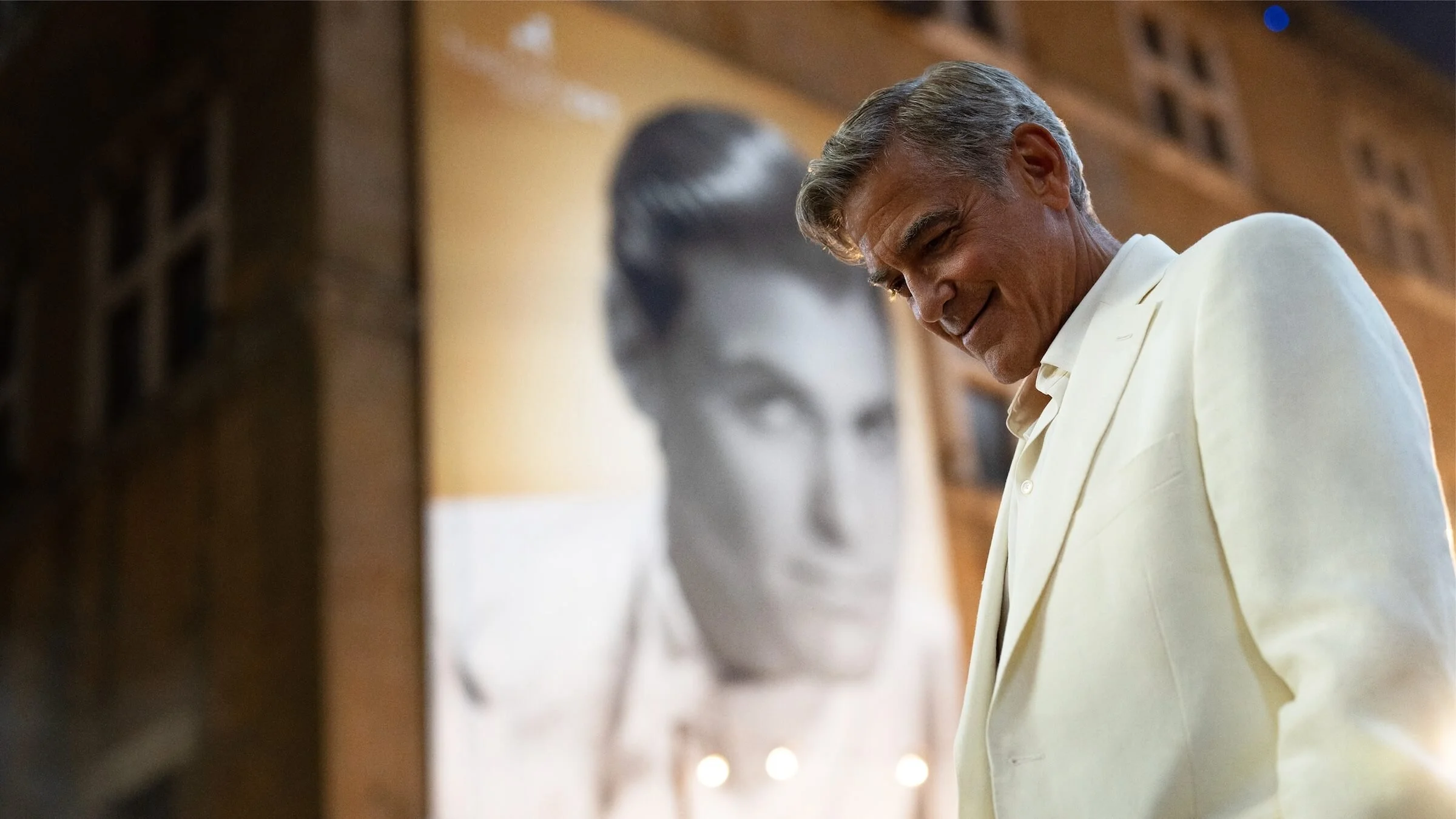Review: Bullet Train (2022)
How do you like your Brad Pitt performances? Do you like him as a stoic hunk, as he is in his Oscar-winning turn in Once Upon a Time … in Hollywood, or as a dopey goof, as he is in the Coen brothers’ Burn After Reading? How about a combination of the two? That’s the version of Pitt that we get in Bullet Train, the B-grade pastiche from David Leitch, the hottest action director in Hollywood. Playing a low-level assassin codenamed “Ladybug,” Pitt presents his criminal protagonist as a man wanting to turn over a new leaf. He repeats therapeutic mantras and tries to defuse situations without the use of firearms, because, as he says without a hint of irony to an adversary in the film, “Hurt people hurt people.” Of course, he ends up killing people anyway, which is the darkly comedic conceit of Bullet Train. No matter his intentions, Pitt’s Ladybug seems fated to bring death and bad luck to those around him.
Based on the Japanese novel by Kotaro Isaka, Bullet Train is cartoonish and violent. It revels in blood splatters and slow-motion shots of characters dying or holding weapons looking cool. Smart-ass, glib, quippy, and violent, it’s the kind of movie that actually is what bad critics think the films of Quentin Tarantino are.
In the film, Ladybug has to secure a suitcase from a bullet train making all stops between Tokyo and Kyoto. He’s supposed to grab the suitcase and get off at the first stop: no questions, no mess, no problem. But the train is full of other violent assassins, each there for mysterious motives and vying for the briefcase. Ladybug has to stay alive, while we piece together who is manipulating who and which of the violent assassins on board is worth rooting for over others.
In the early going, there’s ample time devoted to the various assassins, all given fanciful codenames. These include Aaron Taylor-Johnson and Brian Tyree Henry as British brothers “Tangerine” and “Lemon,” Joey King as “The Prince” who poses as a schoolgirl, Benito A. Martínez Ocasio as the Mexican assassin “The Wolf,” and several others, some being cameos from big-name actors. We get flashbacks about each of the core assassins, which tells us why they’re on the train. And in the midst of it all is Ladybug talking on the phone to his handler, Maria Beetle (Sandra Bullock), about his therapy and desire to leave violent ways behind him, all while he bumbles from one violent encounter to another, barely surviving each one.
The film’s best moments lean into Pitt’s bumbling performance and turn the violent set pieces into slapstick comic sequences. For instance, an early encounter between Ladybug and The Wolf is a highlight as Ladybug defends himself against a knife attack with the metal suitcase and constantly trips over furniture in the lounge car, dodging the knife by the barest margins each round in the fight. It’s the scene that includes his exasperated plea, “I don’t even know you!”, which features prominently in the trailers and captures Pitt’s goofy appeal in the film. It’s also an example of David Leitch and his collaborators drawing on the best aspects of Hong Kong action cinema: on-screen fighting as a form of dance, physical timing and payoff, and violence which functions as both humour and character development.
That said, not all the action is slapstick. Much of it is more Guy Ritchie-lite, with slow-motion guns and characters backlit by the rising sun. The entire film takes place on the train, aside from flashbacks, so most fights are close-quarters, with the camera staying pretty close to the faces, fists, and weapons of the characters. Leitch understands the use of choreography to maintain momentum and interest, both narratively and visually. Cuts aren’t too quick. The camera moves, but not too much. And there’s always a clear sense of direction and cause-and-effect, unless the film is trying to surprise us, in which case the frame completely masks the object that jolts into the frame, whether a bullet, a knife, or a snake. It’s not the ballet of John Wick, which Leitch co-directed with Chad Stahelski, but it’s fun and light on its feet and doesn’t mistake brutality for impact (ala The Gray Man).
Not every moment works, whether action or comic or both. When Brad Pitt or Aaron Taylor-Johnson or Bryan Tyree Henry aren’t on screen, the film has a tendency to drag or get too cute with its ironic violence. Joey King seems a bit miscast aside from looking like a teenage girl, and the Japanese characters are very one-note (which may annoy viewers who take great stock in on-screen representation). But on the flipside, Henry and Taylor-Johnson steal their scenes, and Pitt is a star throughout. Aaron Taylor-Johnson is particularly amusing and comfortable in his own skin here. He’s using his own cockney accent, leaning back into the comic chops he displayed in Kick-Ass, and looks dashing with his thick moustache, slick hair, and smart suit.
You can tell that Bullet Train is made by the same director as Atomic Blonde, Deadpool 2, and Hobbs & Shaw. So why is it so much better than the first two films, and more of a piece with the bombastic, violent fun of the Fast & Furious spinoff? It all comes down to tone. Atomic Blonde is trying for pastiche badassery; when it’s trying to be funny, it’s sour, and when it’s trying to be cool, it’s lame. Deadpool 2 is sentimental hokum masquerading as an edgelord blockbuster. It really wants to make you invested in its paint-by-numbers romance. Bullet Train, in contrast, is more clearly comic and light and not pretending to be too serious or too badass, even if it wants you to think it’s those things at moments.
So despite the cliched needle drops—a few too many, if you ask me—and the quips after killshots and the irony-drenched humour, Bullet Train is consistent in its tone. It delivers the sort of entertainment you want in the lazy days of August. Good action, some clever jokes, and a propulsive plotline that keeps you invested until the off-the-rails climax. And, of course, there’s Pitt, who remains one of the few Hollywood A-listers capable of commanding the screen in both comedies and dramas, prestige pictures and goofy B-movie fare. He always plays a few different types, but he’s capable of being funny, dangerous, or charming—or all three, as he is here. He’s a movie star and this is an ideal vehicle for him to display his talents.
6 out of 10
Bullet Train (2022, USA)
Directed by David Leitch; written by Zak Olkewicz, based on the novel by Kotaro Isaka; starring Brad Pitt, Joey King, Aaron Taylor-Johnson, Brian Tyree Henry, Andrew Koji, Hiroyuki Sanada, Michael Shannon, Benito A. Martínez Ocasio, Sandra Bullock.



Joe Carnahan’s cop thriller starring Matt Damon and Ben Affleck is an enjoyable whodunnit.